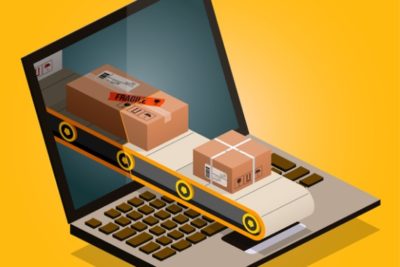What To Ask When Purchasing Asset Tracking Software

Businesses track assets to maintain organization and control. It’s a process becoming so essential that the global asset tracking market is expected to reach $60.7 billion by 2027.
Critical for today’s businesses, asset tracking software allows companies to keep tabs on their inventory and equipment. This information is essential for managing stock levels, ensuring that products are being used efficiently, and preventing theft or loss.
Asset tracking can also help businesses thrive by managing their finances more effectively and providing visibility into where money is being spent and which assets generate the most revenue. Companies improve customer service by providing data that they can use to enhance the delivery of goods and services.
Now that we’ve covered what asset tracking can do, here are answers to the frequently asked questions when you’re in the market for asset tracking software.
How seamless is asset tracking software implementation?
You need an easy, fast, and seamless software solution to integrate into your business processes. Your employees should also find the new asset tracking software easy to use so that you don’t waste time and productivity during the transition from your old system.
Talk to your vendor about whether they have a built-in integration feature and how it fits your current software, hardware, and workflow processes. It should also be easy to install the asset tracking software on any device without data loss.
Do you offer customization options for different businesses?
You may want an asset tracking software that allows you to customize its functionalities based on your workflow processes. Some assets require restricted security assignments, meaning you must have a custom function for ensuring restricted employees don’t use these assets. Also, check whether you can distribute data and give access to your employees based on factors like management levels.
How do you secure client data?
The increasing implementation of digital technology in businesses exposes companies to increased cybersecurity threats. Ask your asset tracking software vendor how they plan to secure your business and customer data. Confirm the vendor’s storage practices and ensure they know how to handle sensitive data appropriately.
How do you handle errors?
Technology still requires human support, so anticipate that errors will occur either through human error or device issues. When this happens, you will need a mitigation strategy, like a built-in backup system that tracks an entire asset’s history. Be sure to ask your asset tracking vendor how they handle errors and transparency practices to give you liability during audits. The solution they provide should be easy to follow without customer support.
How does your software scale in scope and cost?
Most businesses aim to grow in scale and revenue so it is essential to ask your vendor whether their solution will scale with your business investments.
Confirm whether you can scale down the vendor’s services anytime. This way, you have the flexibility to start small and add features to the tracking software or remove those that don’t satisfy your company’s needs.
How do you provide accessibility for employees on the go?
Hybrid, remote, and work-from-home models provide the need for asset tracking solutions that are easily accessible for employees on the go. For that reason, ensure you know how your vendor offers mobile functionality your employees can use on their smartphones or tablets to track and monitor assets. An excellent example is a mobile app you can use to monitor your assets’ location, condition, and maintenance schedule.
How do you offer customer support?
Ask your vendor what support they offer, whether it is available throughout your subscription and the availability of support. Can you reach the vendor’s customer care team through social media, phone, email, or chat? This is important because you need time to adjust to the new asset tracking software. Also, if any issues occur after installation, you will need customer support to smoothen any unexpected concerns.
Every question a good one
Tracking assets is about maintaining organization and control. By tracking assets, businesses can keep tabs on what is being used, where it is being used, and how much it is worth. This allows businesses to make informed decisions about their inventory and budget. Additionally, tracking assets can help businesses prevent theft and fraud.
An asset tracking software vendor might design the solution for your business industry, but no one size will fit all. Use this list as a guide as the starting point, but include questions that fit your company’s asset tracking objectives. When you know what questions to ask, you’re one step closer to an asset tracking solution that meets your exact company preferences.
FAQs
How do I choose asset tracking software?
There are specific things to consider when choosing the asset tracking management solution for your business, like its compatibility with your business workflows, your company objectives, your budget, and the security the software solution provides.
How do you know how to choose one asset tracking software from the other?
Asking the right questions before purchasing asset tracking software will help you narrow your choices to the best fit for your company.
What questions should I ask my vendor before purchasing my asset tracking software?
Create a list of questions based on your company’s mission and the specific needs of your business. If you handle sensitive data, it is crucial to ask how the vendor protects customer data.
